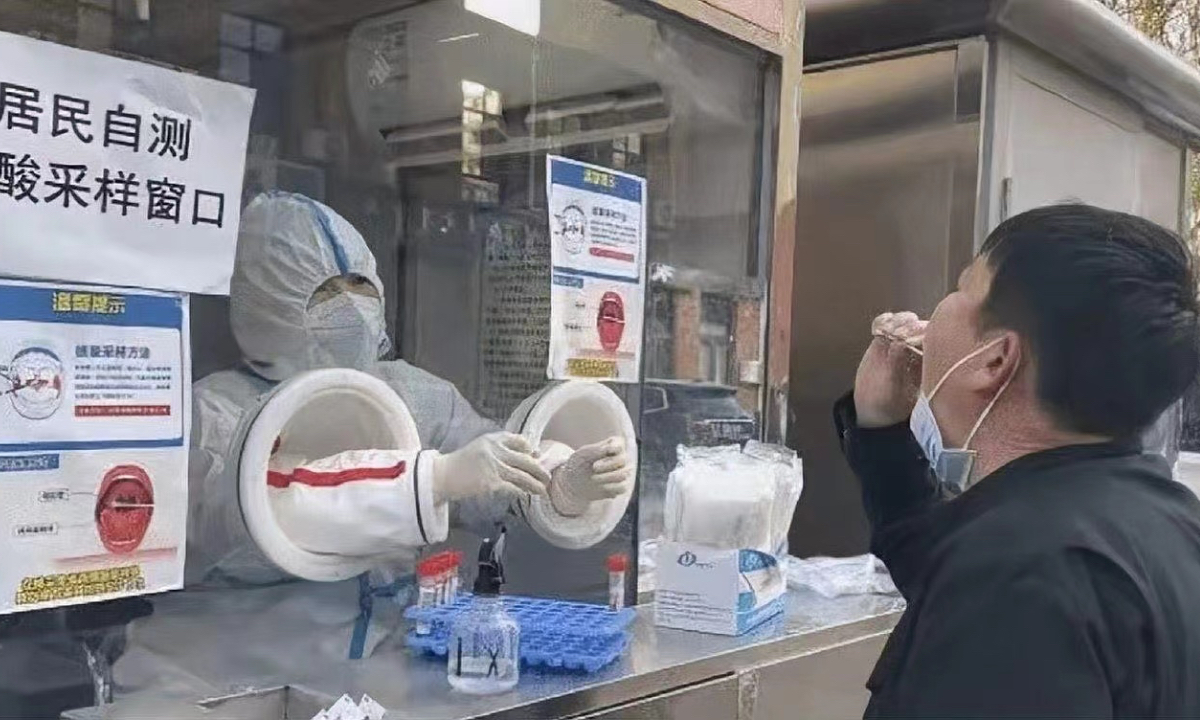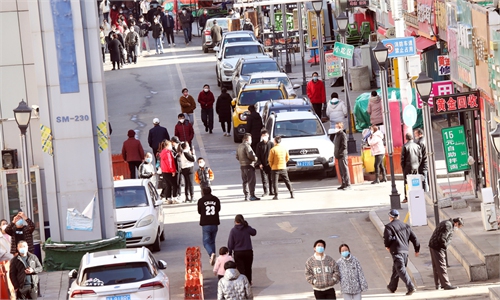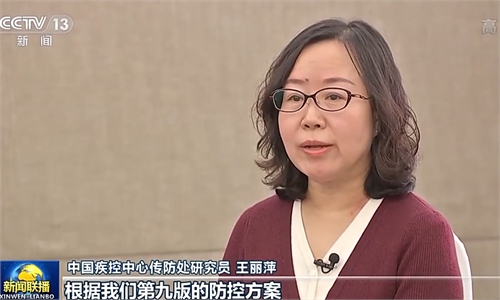
A resident conducts self-test at a roadside nucleic acid testing stations according to the guidance of a medical worker. Photo: Sina Weibo
Many cities in China, including Beijing, Central China’s Henan Province and North China's Inner Mongolia Autonomous Region, are experimenting with the nucleic acid self-testing, with the sampling done by individuals, with health officials responsible for guidance and sample collection.
“It's very convenient to complete nucleic acid tests at home without having to wait in line,” said several residents of Fengtai district in Beijing, describing their previous experience. Some neighborhoods in Beijing’s Fengtai have already launched at home self-testing.
The city of Ordos in Inner Mongolia and Xinxiang in Henan Province have also trialed self-testing in different forms. Residents can test at home through the collection swabs issued by neighborhood officials, or they can collect themselves at the nucleic acid testing stations located in and around residential compounds.
A resident from Inner Mongolia told the media that local residents can obtain cotton swabs at nucleic acid testing stations, and that health officials will help place the swabs into the sample tube after the residents complete their own sampling.
“There are workers on site to guide sampling which is fast and convenient, and it also avoids time wasting and risk of cross-infection,” said a resident who had used the service.
Several neighborhoods in Beijing’s Fengtai began distributing testing reagents to residents early in the morning. “We started distributing sampling tubes at 9:30 am, and collect completed samples at 15:00 pm in the afternoon,” a community worker said.
“The implementation of self-sampling is mainly in consideration of groups who have limited mobility,” a community worker told the media. “The service is focused on providing convenience to children and seniors.”
In addition, more than 300 new nucleic acid sampling machines appeared on the streets of Henan Province’s Xinxiang mainlyin shopping malls, supermarkets, schools and other public places.
These units can carry out testing using a cotton swab to wipe the back of the throat, after the device issued a "test passed" prompt, individuals place the cotton swabs into a waiting test tube.
This kind of machine only needs people to open their mouths at the unit following disinfection and temperature measurement, with a cotton swab to wipe their throats. “This type of test is more suitable for younger people,” a Xinxiang resident noted.
However, some experts also have doubts about whether this measure could be effective. “Nucleic acid testing has a series of collection procedures and specifications, and even some professionally trained medical staff cannot meet the full standards,” a Guangzhou-based medical expert told the Global Times on Sunday.
It is debatable whether requiring these residents to take a self-sampling of nucleic acid without any symptoms would be effective in detecting infections, Yang Zhanqiu, a professor of the pathogen biology department at Wuhan University, told the Global Times.
Global Times


